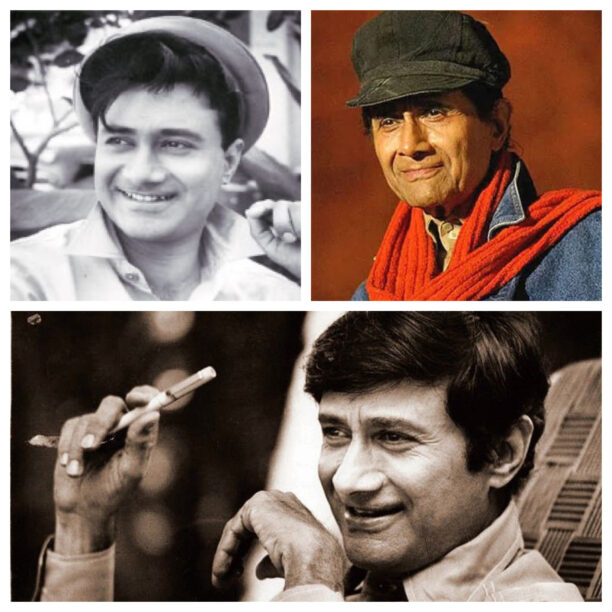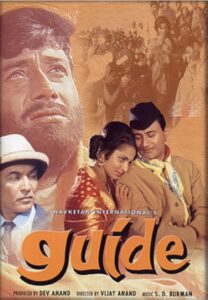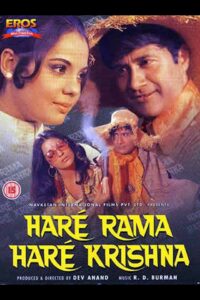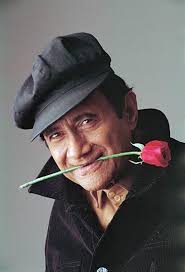 On Dev Anand’s birth anniversary, we have a far-ranging, fantastic, fascinating unpublished interview when the acclaimed actor, writer, producer and director talked to Subhash K Jha about his career.
On Dev Anand’s birth anniversary, we have a far-ranging, fantastic, fascinating unpublished interview when the acclaimed actor, writer, producer and director talked to Subhash K Jha about his career.
How do you look back on your illustrious career?
(Interrupts impatiently) You know me, don’t you? My company was formed in 1949. Today, Navketan is still making pictures.
Jackie Shroff thinks you’re a miracle come true
It isn’t a miracle. It’s the way I am , the way I think and function. It’s me! I’m a movie maker brimming over with ideas. When I finish a picture I’m on to the next one immediately. Another idea germinates and I’m hooked. When I’m developing an idea for a film I’m completely unaware of my surroundings. It’s like when you’re writing an article , are you aware of the world around you? Likewise movie-making is my passion. Once I decide on a subject nothing can stop me. Often people ask me why I make films that I do. My reply is, because I want to. They ask, ‘Aren’t you scared?’. But scared of what?! The censor board? But the censors are a part of an organized government system invented to run the country. And the country belongs to me! I’m within my rights to project my point of view. I don’t even pause to consider the brickbats or the applause.
Is your film Censor against censorship?
No, it isn’t against anything. All I’m trying to say is, let’s move with the times. We gained independence in 1947. Now in the era of post-liberalization, satellite television and globalization why should we cling to the same feudal censorship laws?
In principle, are you against censorship?
No, I’m not asking to abolish censorship. I’m only asking for its liberalization. Let’s be more realistic. All the absurdities and double standards of censorship must be done away with. What’s this, ‘Yeh do shot chod do yeh do retain kar lo?’ Young people cannot be shown nursing a drink in their hands. It’s absolutely absurd. The censor board abides by the rules laid down by the ruling government. But the ruling government doesn’t represent the nation. Let me make on thing clear. My film Censor doesn’t hit out at anyone or any institution. It represents a clash between old and new values. It says, let’s move into the 21st Century without the excess baggage of outdated morals.
Will Love At Times Square again feature newcomers?
I don’t know. It’s the story of two boys and a girl. My casting is yet to be done. I’ll decide as soon as Censor is released. You see, I’d like to cast established stars, but only if they make themselves available. Otherwise, a film gets delayed, and dated.
But do the stars give you a tough time?
Every major star has his own group of favourite directors who keep him busy. If not stars then I’d have to cast newcomers.

Do you notice a drastic change in morality in the stars of today and your generation?
The stars of today hold me in tremendous respect. Censor has a huge star cast of Govinda, Amrish Puri, Jackie Shroff, Hema Malini, Rekha, Johnny Lever, Shammi Kapoor, Raj Babbar. They all agreed to be part of Censor very willingly in some beautifully designed roles. As far as I am concerned there’s no change in morality in our cinema. What has changed is the volume of competition. Today our films have to compete with satellite television and world cinema. The audience has grown by leaps and bounds. And they are selective about their cinematic entertainment. Any why shouldn’t they be? They’ve every right to be selective. That makes filmmaking today even more challenging. We must accept the audiences’ growing selectivity as a blessing in disguise. Otherwise the quality of entertainment will never improve.
How do you select the subjects for your films?
I’m always very contemporary. I read, travel and meet people all the time. I’m a very clued in person. Ideas for films strike me all the time. Some stay, others stray. The ones that keep coming back to me finally go on film. My next film is always the one that makes me go, ‘Oh God!’ when I wake up in the morning. It haunts my subconscious while I’m sleeping eating drinking and even conversing with people.
Your best known work as an actor and producer remains Guide.
Yes, I got my brother Vijay Anand to direct the Hindi version which was completely different from the English version of Guide. We changed the story completely to suit the Indian ethos.

Is Guide your favourite?
That’s difficult to say. I look back fondly on all my babies. They are all mine. I chose them. They were all my favourites when I made them. They still are. It’s just that some films click with critics, others with the audience. But they were all good pictures. For every film of mine there was a percentage of appreciative audience.
While your earlier films as director featured major established actors your recent films lean more and more on newcomers.
Subhash, even in Hare Rama Hare Krishna the only established star was Mumtaz. She was very keen to do the picture. I agree the newcomers in my later films didn’t make a very big impact. That’s because these films weren’t very big hits, and not necessarily because these newcomers were not accepted by the public.
Why do you think your recent films haven’t worked?
There are many reasons for a film’s success or failure . The timing of release, the quality and stress of the publicity and the audiences’ frame of mind have to synchronize for a picture to become acceptable. Success and failure work in a cycle. A subject that doesn’t work this year, becomes a big hit five years later. These things happen to all of us. I never return to the same subject twice. Neither do I go by market conventions, ke do bhai , ek police inspector doosra criminal, pakad liye. No! People will talk about my films after I’m gone from the scene of action. Ussne yeh bhi banaya, woh bhi banaya…I’ve always gone into the contemporary mind and projected contemporary thoughts. My films are very forward in approach, very ‘in’ and very sophisticated. My first film as a director Prem Pujari was on the Indo-Pak conflict. Then came Hare Rama Hare Krishna, which was on drug abuse. Then I made Heera Panna about a photographer and a model . Swami Dada was about the commercialization of the Hindu religion in the West—for this film brought a 14-year old girl from the United States who gave a very fine performance. Then I made a film on the state of education in the country called Hum Naujawan and a film on cricket and terrorism Awwal Number. And Des Pardes! How can we forget that one? It was about illegal immigration into the US. These were mirrors of the world that we live in.

But your best recognized directorial venture remains Hare Rama Hare Krishna?
The reasons for that are for the world to analyze. Who knows, after Censor people might have very positive things to say again.
Would you define Dev Anand for me?
He’s restless. He wants to achieve more and more, and more and more…. He never sits on his laurels. His achievements are not for him to discuss. It’s for critics and film historians. I need to go on making films as long as I can. Unless something happens to me physically—and that can happen to anyone at any time– I need to keep on going in artistically, aesthetically, creatively and intellectually. My mind needs to be creatively stimulated all the time.
The music of your cinema has always been very special.
I think I’ve a great ear for songs. I’m not a musician. I don’t compose songs. But I’m always tuned to good compositions. Yes, I always take a keen interest in the music of my films. Every song situation in my script is well thought-out.
Have you been able to find composers of the calibre of Sachin and Rahul Dev Burman among contemporary composers?
That’s a difficult task. Today’s composers are all good at their work. But the kind of kind of dedication and commitment that the Burmans showed, is missing today. The presentday composers are too commercialized. They’ve taken more on their plates than they can chew. When you take on too many assignments you don’t even know you are repeating yourself. S.D. Burman and his son were part of my Navketan family. They could call me anytime for a music sitting. We would sit down and listen to a tune and I’d exclaim, ‘My God! BurmanDada this is great stuff. Let’s keep it for my next film.’ I miss that kind of rapport with today’s composers.
Is it frustrating when your colleagues and co-workers cannot match your enthusiasm and commitment ?
It isn’t frustrating. I understand their impatience to make money while they’re at the top. You can’t blame them for making the best of their situation. I try to work only with people I’m comfortable with , people who are willing to give me the time, dedication, and concentration. That’s why you find newcomers in my films. They’re eager to work and prove themselves. And they reciprocate my level of discipline and commitment.
Do you have any other interests apart from cinema?
Film is one medium that encompasses all creative mediums. It contains poetry, prose, music , photography, art, choreography. What else can I want? If I was a politician I’d have to bend backwards to get people’s votes. As a filmmaker all I have to do is offer them my creativity. If they like it , I’m very happy. If they don’t they can’t abuse me for it. I just need to go on to the next creative endeavour, then the one after that. Such creative freedom gives a great high. No one dictates my creativity. Politicians come and go, but when you’re part of cinema you’re talked about forever.

Admit it, Dev Saab. You’re a workaholic?
Well, let me ask you something. Why do you drink alcohol? Because you want to be intoxicated. I’m intoxicated by filmmaking. For me cinema is a movement, it’s about people, characters. It ‘s a happening…
When do you find the time to be with those who are close to you?
In-between movies. I take a respite before going to my next film. Then it is a holiday for me. I spend time meeting people, drinking, eating, enjoying myself with friends. And through this phase ideas keep growing inside, like a baby in a womb.
When do you plan to write your autobiography?
That’s a question I’m being asked all the time. Lots of publishers including American and British ones, are chasing me. I think I’ll have to find a month ‘s time when I do nothing else except write my thoughts for the world. Starting from 1943 when I first landed in Mumbai to present day—I have so much to say. What an eventful life! And to be known in different parts of the world. I think I’m very lucky.
I think there’s more than luck at work here.
Maybe. But I feel there’s some power guiding my life. I’ve never sat down to analyze it. When I’m working on a film I ‘m like a man possessed. I don’t care who’s coming or going. I don’t really care about what people say about me or my work, as long as I’m saying what I want to a way that I think is right, and not hypocritical.My films come straight from my heart. And I love making them









